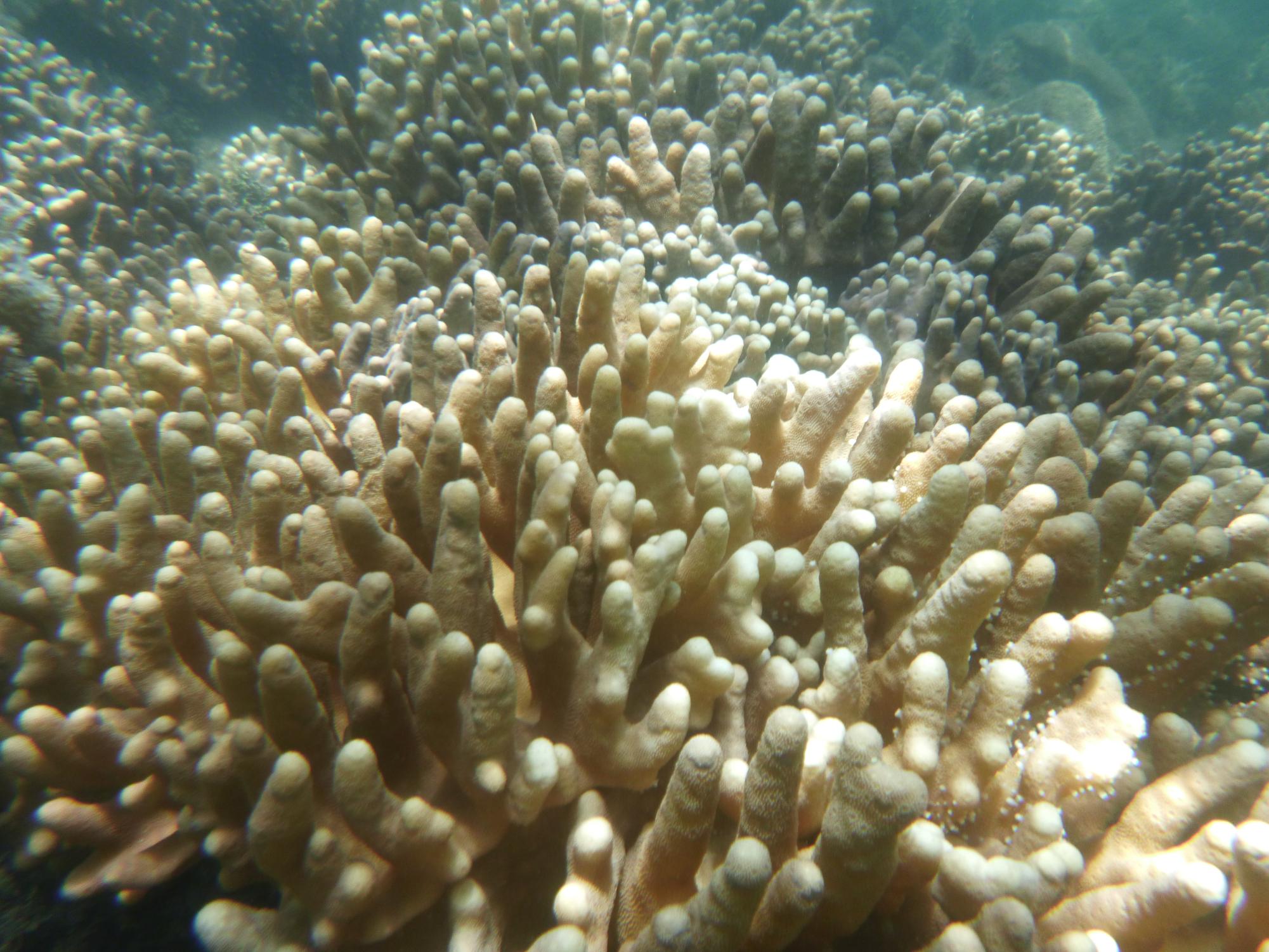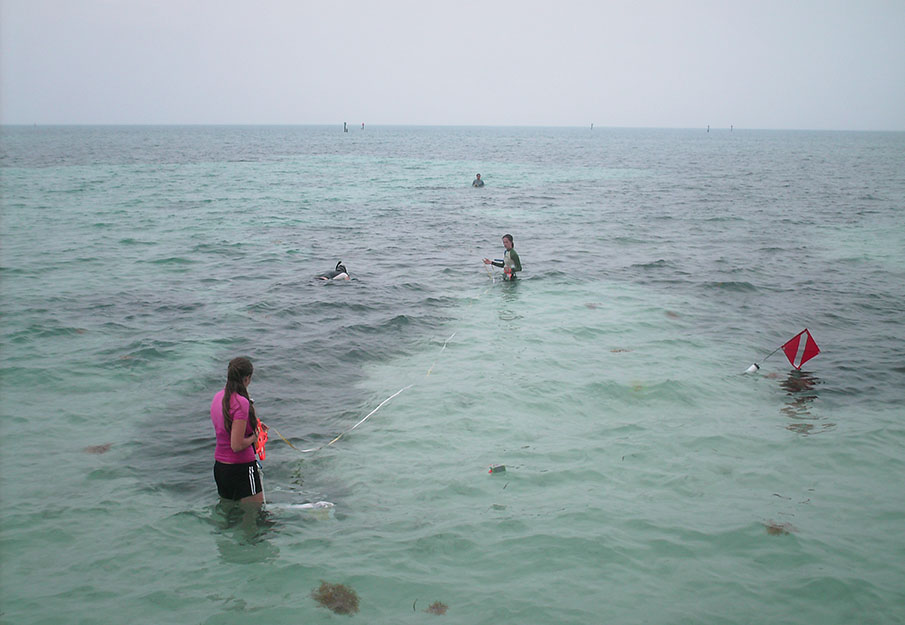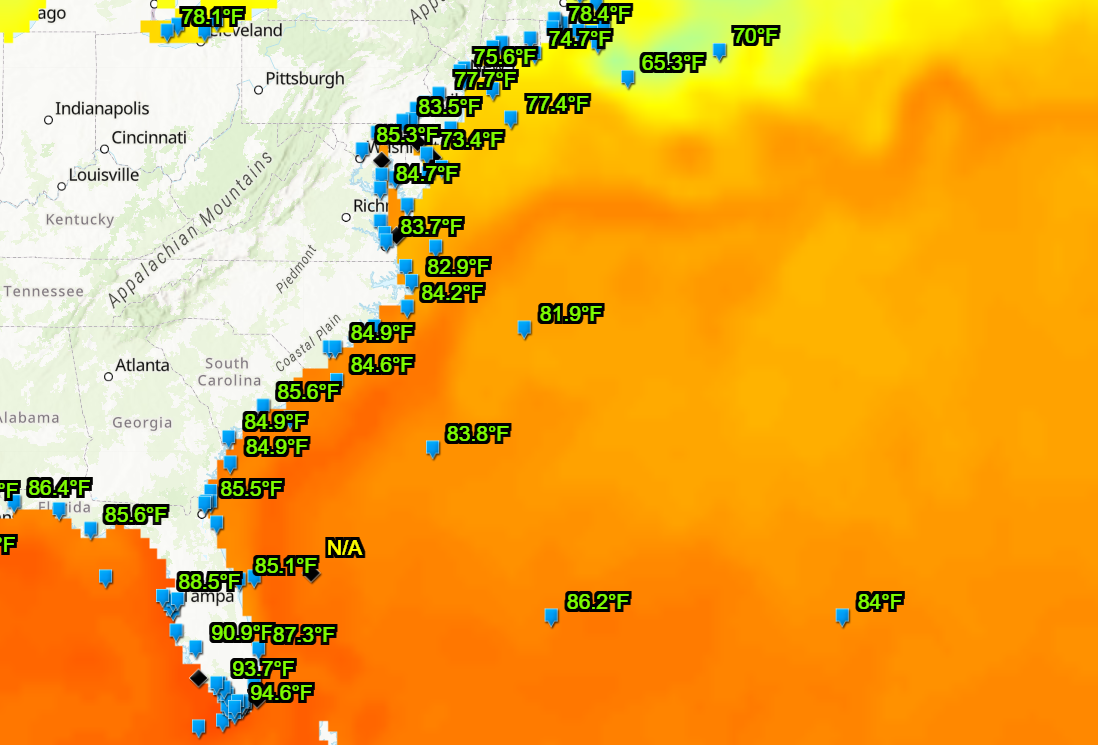Extreme temperatures have been commonplace in Florida in recent weeks, putting one of the state’s already-vulnerable populations, its marine life, in even more danger.
Jacksonville residents are familiar with seeing feels-like temperatures well over 100° this summer, some of which were part of the hottest week on record, according to the University of Maine’s Climate Reanalyzer. While ocean temperatures play a significant role in this high heat, the seven seas can’t be blamed for this. Rather, they and the creatures that call them home are victims.
Dr. Adam Rosenblatt, an assistant professor of biology at the University of North Florida, explained that there are two main issues that are caused by these upticks in heat. First, hotter water temperatures can stress sea creatures, which can ultimately lead to death.
This is most abundantly seen in Florida’s coral populations, where bleaching has been a major concern. Bleaching occurs when coral becomes stressed due to changes in its environment, such as heat, and can no longer support the algae that it leans on for survival. Similar to the function of the human immune system, this leaves the coral vulnerable.

While the National Ocean Service reports that it’s important to remember that not all bleaching is the result of rising temperatures, it is a large part of the equation.
“That’s a major issue because coral reefs support about 25% of all marine species,” Rosenblatt said. “If we lose coral reefs, then that means that those other marine species don’t have the habitat they need to survive.”
These situations naturally force sea creatures to flee these areas and move to cooler waters. Instead of merely affecting migration, it results in marine life finding themselves in entirely new homes, Rosenblatt explained.
“The range of animals shifts over time in the ocean in response to heat,” Rosenblatt said. “Not like migrating back and forth from one location to another, but where they live on a year-by-year basis.”

The second main issue posed by rising ocean temperatures is one that’s very close to home. With home being our bodies, that is. Fish and other marine species may live underwater, but they need oxygen just as much as we do.
The problem with this is that warm water lacks the ability to hold the needed amounts of oxygen for survival. This is particularly evident with larger fish, who require larger quantities of oxygen for proper respiration.
“Warmer waters can hold less oxygen and that’s just how physics work,” Rosenblatt said. “As the waters warm up, there’s less oxygen for those creatures and they can die.”
Images of dead fish floating on the surface are far too familiar. While this may seem to point to some sinister downfall, such as a virus or disease, it’s often because of this lack of oxygen that’s caused by rising ocean temperatures.
Unfortunately for the species that call Florida home, these problems are confounded by the state’s location.
“We’re already a hot place,” Rosenblatt said. “That means that some of the marine creatures, like the coral, they’re already near their temperature limit.”
There’s less wiggle room for these organisms to adapt with. Once this limit is breached, they are met with an ultimatum: move or die.

This is clearly a grim situation and, unlike many other social issues, there’s not much one can do on their own to spark positive change. So, what’s the answer to solving the problem?
Rosenblatt believes the solution can be found on the ballot.
“The number one thing that anyone can do is vote,” Rosenblatt said. “You have to educate yourself about where these folks stand on climate change issues [because] at this point, individual actions in your own life are not going to make the difference.”
If progress isn’t made, the beautiful marine life that is synonymous with the Sunshine State may have to pack their bags and leave. Or worse, they might not have the time to make it out alive.
___
For more information or news tips, or if you see an error in this story or have any compliments or concerns, contact editor@unfspinnaker.com.








